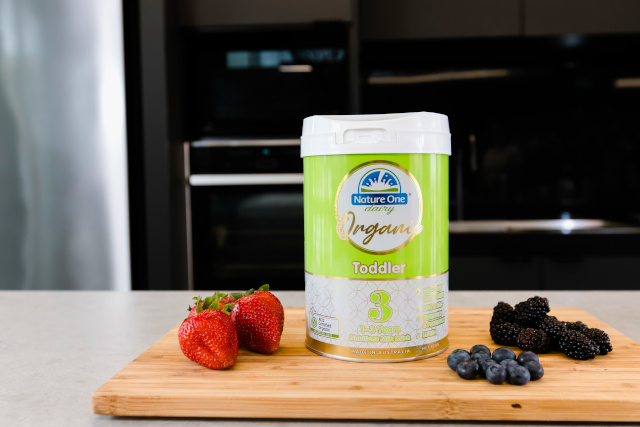If you’re a new mom or dad, it can be a huge challenge to take care of your baby who is feeling cranky. Some babies may cry more excessively, and inconsolably without reason, than others. But do you know if your baby is just being fussy or experiencing colic?

What is Colic?
Colic is not a disease or sickness, but simply a behaviour. Paediatricians use the “rule of threes” to determine colic: Crying that starts when a baby is about 3 weeks old, lasting for more than 3 hours a day, on more than 3 days a week, for more than three weeks in a row.
➡️ Related Read: Caring For Your Colic Baby
Causes of Colic
Colic is common among babies, with about 15 – 25% of babies experiencing it. There is no exact cause and in fact, some say colic is a bit of a mystery (but don’t worry, doctors say it is not a reflection on parenting skills). Here are some possible causes that have been suggested by doctors:
1. Oversensitivity or overstimulated senses
Babies are extremely sensitive to sights and sounds around them. With so many new sensations coming at them, they may become overwhelmed and keep crying out in discomfort.
2. Gas
Babies may develop gas as a result of swallowing too much air while crying.

3. A growing digestive system
Digesting may be a challenge for a baby’s brand new gastrointestinal system. As a result, food may move through too quickly or is incompletely digested, resulting in pain from gas in the intestines.
4. Infant acid reflux
Gastroesophageal Reflux (GER) or reflux can cause colic as it happens when the muscle that connects the oesophagus to the stomach (oesophageal sphincter) may not close properly, causing stomach acid to flow back up into the throat and mouth.
5. Allergies
Doctors believe colic may be a result of allergies to the mother’s diet or cow’s milk (or lactose intolerance). Allergies or sensitivity can cause stomach pain and make your child colicky.
6. Tobacco exposure
Exposure to cigarette smoke can cause discomfort and further aggravation.
Solutions to relieve colic:
1. Tummy time
Some colicky babies find relief when pressure is placed on the abdomen. Giving your baby some private time in a different position can calm them down. You can also gently rub or pat his back, which is soothing and may help gas pass through.

2. Carrying
Not only is carrying or cuddling comforting for your little one, but they may also quieten when held closely particularly in a lightweight blanket. Holding your baby for longer periods early in the day might help reduce colic later in the evening.
3. Repetitive motion
Keeping your tot in motion can soothe colic. Gently rock your baby in your arms or in an infant swing. You can also sit with your feet slightly apart, knees together and lay your baby on your knees with her tummy down. Then sway your knees slowly with very small but gentle movements.
4. Hold your baby upright
Lying on their back or reclining in a car seat after eating can cause breast milk or formula to back up. Holding your tot upright after feedings can reduce acid reflux symptoms.

If you are breastfeeding, it may help to allow your baby to feed at one breast at a time before switching sides. Taking short pauses during feedings to burp your baby may also be helpful to reduce symptoms.
5. Switch Formulas
For some babies, changing to a hydrolysate infant formula or one that doesn’t contain cow’s milk as it is designed for sensitive tummies. But before you do, do get your doctor’s approval before making the switch.
Don’t worry!
Listening to your baby’s incessant screams can be heartbreaking, upsetting and even exhausting too. To cope with colicky babies, the first step is to take notice of what works and what doesn’t soothe your baby. This will help you pinpoint solutions to comforting your baby and figuring out her needs.
If you’re really at a loss, the next thing to consult your paediatrician. Don’t hesitate to ask for help. Whether from your doctor or your partner, mother or friend, remember you have your pillars of support to help you overcome challenges of parenthood.
By Lynette Kwan.
Sources:
1. Singhealth
2. Mayo Clinic
3. What to Expect
* * * * *
Stay in touch! Subscribe to our Telegram here for all our latest updates.
If you find this article useful, do click Like and Share at the bottom of the post, thank you.


























































Leave a Comment: